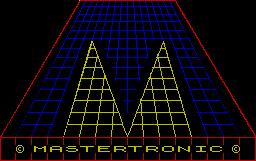 ![[Great Britain]](images/flags/uk_britn.gif) Mastertronic Mastertronic
Mastertronic was formed by three people: Martin Alper, Frank
Herman and Alan Sharam. They all had experience of video
distribution. They also had some financial backing from another
small group of investors. The company's first premises were in the
back of Alan Sharam's offices (he was also a surveyor at the time)
in George St, London W1. They used to make up packages of 100
tapes ("dealer packs") and send them out to newsagents, toy shops,
motorway service stations, just about anyone who would take them.
At that time (1984) the mainstream retailers refused to take
budget games because they had had bad experiences in the past.
Mastertronic eventually won them over by showing that new games
would regularly be produced to replace old stock and by producing
games that sold well. Another key figure at the time was an
ex-professional cricketer batsman (Nottinghamshire) Richard Bielby
who ran a distribution network servicing a large number of small
retailers.
Martin Alper, who had the most marketing flair, went to the USA in
1986 to set up Mastertronic Inc. The UK company was managed by
Frank Herman, whilst Alan Sharam increasingly specialised in sales
and logistics (warehousing, packaging, controlling production
schedules). After the Sega takeover Frank Herman became deputy
Managing Director of Sega Europe and Alan Sharam was Managing
Director of Sega UK. Martin Alper became resident in the US and
continued to work for Virgin Interactive, which was soon taken
over by Blockbuster Video.
None of the directors knew anything about games. They used to
boast that they never played them. When programmers came in with
demos, someone would have to load the games for the directors,
plug in the joysticks etc. Mastertronic never employed programmers
directly (unlike for instance Virgin Games who had a staff of six)
but bought everything from outside, either directly from the
authors or from other games publishers. In their heyday they were
deluged with games from enthusiastic amateurs and managed to
publish quite a few of them. All game authors were paid royalties
four times a year.
Early in 1987, Mastertronic bought the European part of Melbourne House and the Melbourne
House name.
Around the summer of 1987 Virgin Group bought the 45% of shares
held by the investor group mentioned above. The remaining 55% was
held by Alper (25%), Herman (20%) and Sharam (10%) and they sold
out in 1988 in a highly complex deal which required their
continuing involvement in the business and achievement of profit
and cashflow targets.
Much of the early output was supplied by just two producers - the
Darling brothers who of course formed Codemasters as soon as they could
break their contract with Mastertronic, and Mr Chip Software who
continued to do games for us for some time.
Frank Herman spotted in early 1987 that Sega had no UK distributor
for the Master System range. Mastertronic sold everything they
could get that year and were then appointed as distributors in
France and Germany as well, and thus Sega Europe was born. Branson
undoubtedly wanted to buy Mastertronic in order to get into the
Sega business. By 1991 nearly all Mastertronic's turnover, and
certainly all the profit, came from Sega business. As a result
nearly all the staff moved over to Sega when they bought the
business in 1991. Only a handful of Virgin games programmers
stayed with the publishing side of Mastertronic (quickly renamed
Virgin Interactive Entertainment) where they continued handling
the non-consols games part of the business. By that time the
budget games business was dying and nobody cared about it. In any
case the competition had become intense as everyone was now
recycling their old full price games as budget games.
The average sale between 1984 and 1987 was about 40000 units,
easily enough to be able to pay the programmer, music writers etc
about £4 - 5000 and also make a nice profit. The games may have
sold at £1.99 but the retailer and VAT would take over £1 of that.
Mastertronic's top selling game at 147000 units was Ghostbusters,
but that was not an adventure.
Most of the above description written by Anthony Guter who was financial
controller for Mastertronic from 1985 to 1991.
Mastertronic might not have been an official distributor of
Infocom games, but they acted as a wholesaler of full price
software to some major UK retailers like Toys'R'Us and Woolworths.
Mastertronic also published games on the labels M.A.D. (Mastertronics Added
Dimension, sold for £2.99 instead of the ordinary price of £1.99), Tronix (label
used for more adult games), Bulldog Software ("The Best of Brittish"), Ricochet
(budget re-releases of games made by other companies) and Mastervision. They
are currently owned by Titus.
There are inofficial sites about Mastertronic: They distribute Magnetic Scrolls, Smart Egg Software and Infocom.
For more information, see Silhouette Software, Codemasters and Virgin Games.
 Se-Kaa of Assiah Se-Kaa of Assiah
Type: Character graphics
Written 1984 by Clive Wilson and Les Hogarth.
Runs on:
Notes: Divided into two parts. Inlay covers by Words and Pictures
Ltd.
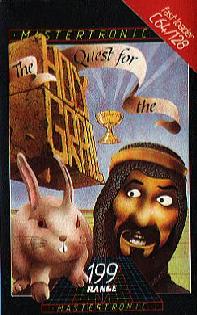 The Quest for the Holy Grail The Quest for the Holy Grail
Type: Drawn graphics
Written 1984 by Dream Software Ltd (Chris Newcombe).
Runs on:
Comments: Pathetic and extremely humourless game based on the Python
movie. Awful parser, very slow graphics and way, way too easy.
For more information, see Dream Software Ltd
 Zzzz Zzzz
Type: Character graphics
Written 1985 by Clive Wilson and Les Hogarth.
Runs on:
Notes: Inlay cover by Words and Pictures Ltd.
Demon's Tomb: The Awakening
Type: Graphics
Written 1989 by Silhouette Software.
Runs on:
Notes: You first play an archeologist who must save his findings and
then his teenage son who must find out what's going on before an
ancient evil rises.
Comments: Good graphics and good parser
Shades of Grey
Trilogy
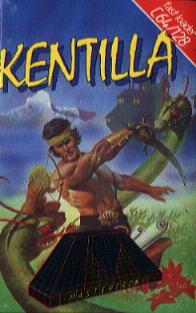 Kentilla Kentilla
Type: Drawn graphics/Music
Written 1985 or 1986.
Runs on:
Comments: Superb.
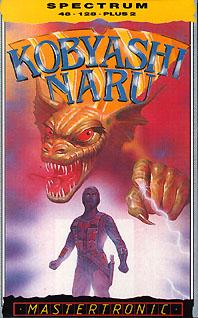 Kobyashi Naru Kobyashi Naru
Written by Clive Wilson.
Runs on:
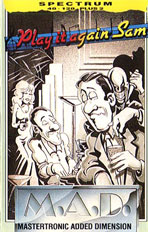 Play it Again Sam Play it Again Sam
Type: Bitmap graphics
Written 1986 by Rubberchip.
Runs on:
Sinbad and the Golden Ship
Type: Character graphics
Written 1986 by Roy Carnell and Stuart Galloway.
Runs on:
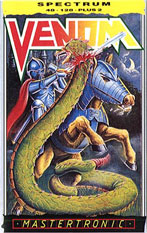 Venom Venom
Type: Character graphics
Written 1988 by Clive Wilson and Les Hogarth.
Runs on:
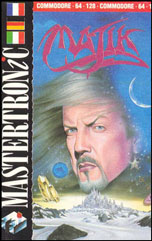 Majik Majik
Type: Character graphics
Written 1988 by Clive Wilson and Les Hogarth.
Runs on:
|